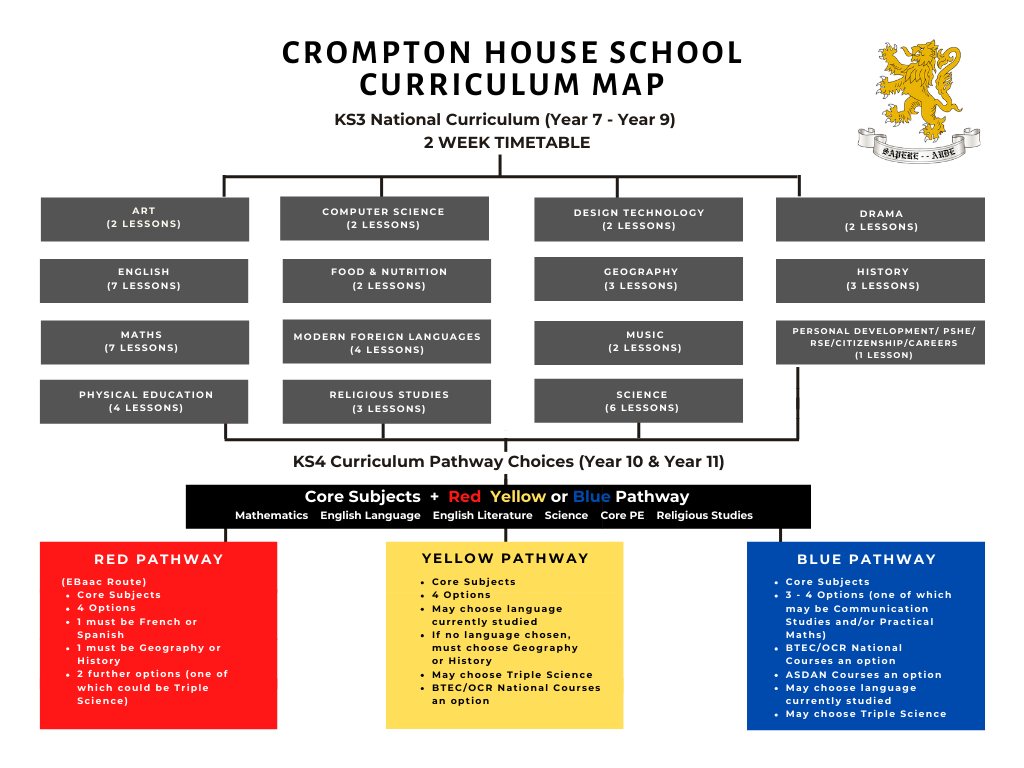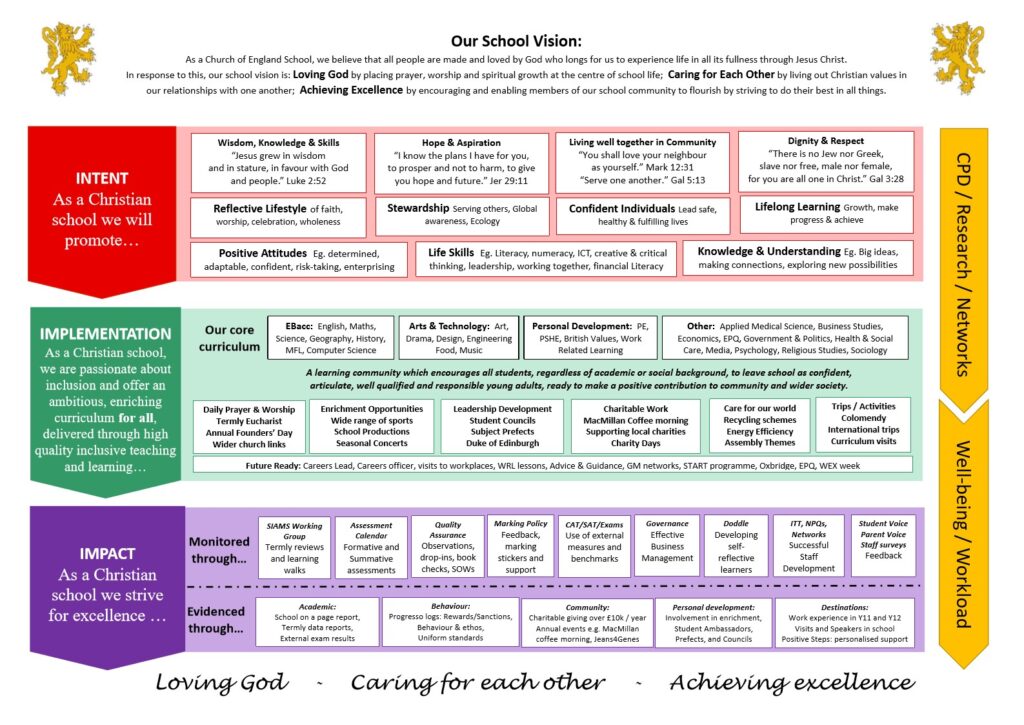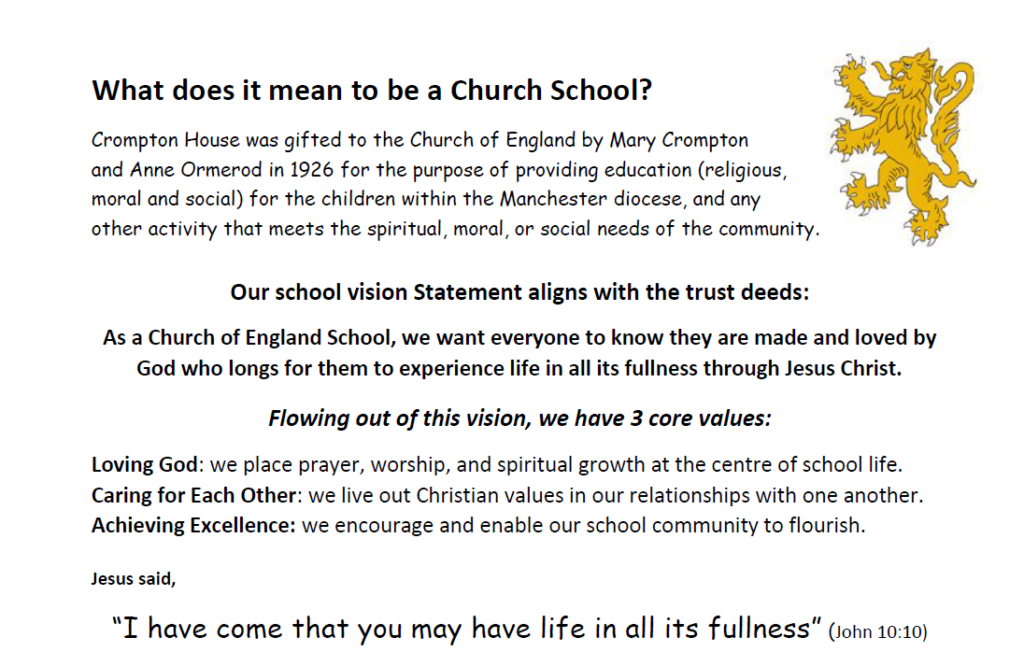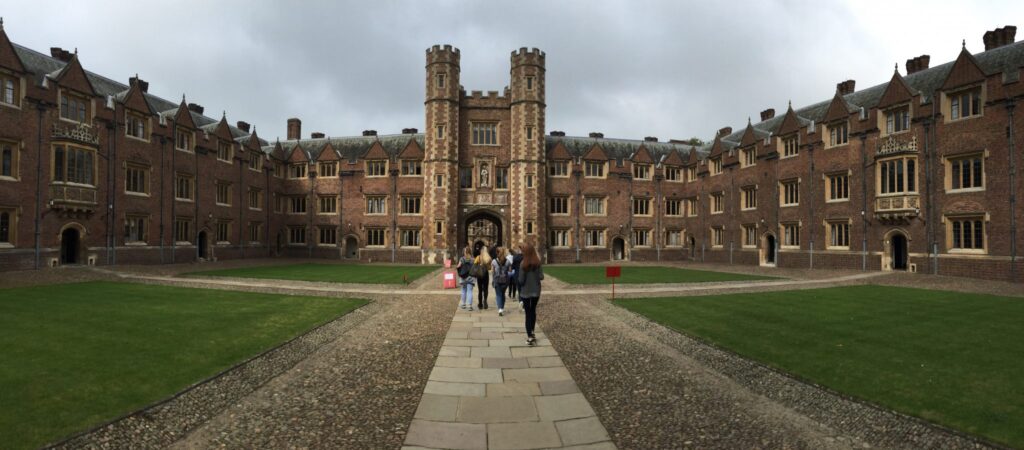YEAR 11 RESIDENTIAL TO SIDNEY SUSSEX COLLEGE, UNIVERSITY OF CAMBRIDGE Monday 25th – Wednesday 27th September 2017 by Cameron Husselbury
I recently had the amazing opportunity to stay at Sidney Sussex College at Cambridge University, on a three-day residential, to get a taste of what life as a student there would be like. Seven students and I, accompanied by Mrs Shaw and Mr McClure, made the five-hour journey to Sidney Sussex College on the school bus. We arrived in time for the ice breaker session, where we were joined by students from two other schools. Grace Dickinson, Sidney Sussex’s Schools Liaison Officer, first made us play different games to help us relax and ease into the programme. For example: ‘line up in age order without speaking a word.’ These were a really fun way to ‘break the ice’ between us and the other schools.
Then followed a session explaining about the university and its admissions process. They outlined the requirements for entry and dispelled common myths, such as that you have to go to private school or have lots of money to study there. This talk also highlighted the importance of choosing the correct subjects at A Level.
Next was a tour of the college, which is steeped in history and has beautiful architecture. We were accompanied by four current undergraduate students. We became close to a 3rd year Engineering student called Tom, who was very nice and down-to-earth. He seemed to really enjoy studying at Cambridge and had passion for his subject. This is actually one of the things the session talking about the admissions process highlighted: the main thing they are looking for in an applicant is a real love for the subject they wish to study.
Sidney Sussex College’s famous alumni include Nobel prize winners and 11 members of the Bletchley Park codebreakers, to name but a few. Oliver Cromwell was also once a student there, and his skull is actually hidden somewhere on the site! Apparently only two people know its exact location. We learnt about this during our ‘ghost tour’ on the second night. Allegedly, people have seen ghosts around the campus, and one of them is Oliver Cromwell himself. Another interesting fact that we learned was that there are lots of lush grassed areas dotted around the university that only Fellows are allowed to walk on.
We then had a delicious meal in College Hall, the main hall where students of the college eat, then were shown to our rooms. We stayed in student accommodation and I was given a ‘single’ room, equipped with everything a student could possibly need. It was larger than expected and very nice. There are different grades and styles of accommodation available, and each room has Wi-Fi. It was really exciting staying there, as I could really imagine what it would be like to be a student there.
Day 2 started with a full English breakfast in College Hall, followed by a walk to Fitzwilliam College, another of the 31 colleges of the university. We were given a special tour of it, which took about an hour and a half, and then had an hour’s walking tour of Cambridge, where they pointed out several of the other colleges to us.
After lunch we had our first academic taster session, which was Biological Sciences. The lecturer was involved in cancer research, developing technology to help detect cancer cells in the oesophagus. It was very interesting to see the real-life application of a subject that we learn at school. The taster session helped focus our mind on the wider applications that the subjects we choose now can have in the jobs we may do in the future.
Later that day we had a student profile session, where we were shown the typical student’s academic day-to-day life. We learnt about the shorter term times at Cambridge compared to other universities, and about weekly ‘supervisions’ where you meet up with your tutor and talk through any problems. The undergraduates all seemed to agree that they valued this part of student life at Cambridge. We learned about the number of hours of work a student could expect, although of course this can vary from subject to subject.
After refreshments we had a Russian taster session, where we were introduced to the letters of the Russian alphabet, shown how to pronounce them, and taught basic translations of words such as ‘hello’ and ‘goodbye’.
After dinner on day two we had free time and then a quiz on subjects such as Cambridge University, Sidney Sussex College and wider topics such as popular culture. My team won!
On the final day we checked out after breakfast and placed our luggage in the Porters lodge (or the ‘plodge’ as it is known by students) so that we could enjoy the final day unencumbered. Then followed a visit to the Engineering department. We had a tour, and a talk about the important work that goes on there. One of the things I found interesting was the race Cambridge enters against teams from across the world, where they design and build solar-powered cars and race them from one end of Australia to the other. We were shown one of the actual cars that had been used in one of the races, built by a team from the Cambridge Engineering department. It didn’t have its solar panels on it as they are currently being used on the latest model.
After the tour of the Engineering department we had an English lecture, where the speaker taught us about poetry and the different techniques writers employ to engage their audience.
We then had some free time, during which we explored the souvenir shop, then left Cambridge at 4pm, expecting to be home for 8.30pm. During one of the motorway service station stops the school bus broke down and we ended up arriving back at school at 2am. This was just another fun part of what had been a great adventure (although I am not sure Mrs Shaw or Mr McClure would agree!). I loved every minute of the residential, which has made me very keen to apply to study there in the future. It is a place where you will be taught by leading world experts in the field that you are interested, and surrounded by students who share your passion and enthusiasm for the subject. Thank you, Crompton House and the University of Cambridge, for giving us this experience.





